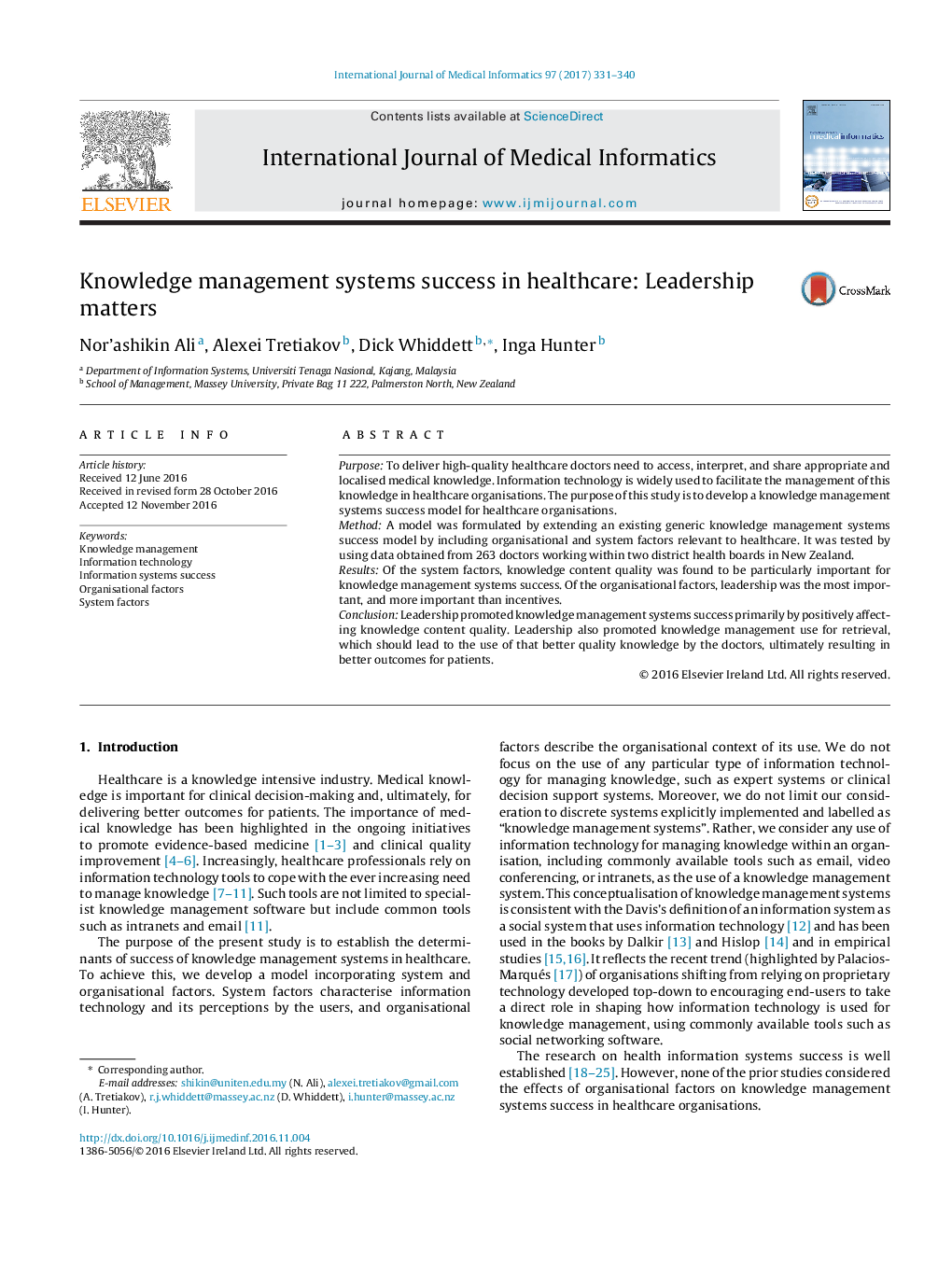| Article ID | Journal | Published Year | Pages | File Type |
|---|---|---|---|---|
| 4966750 | International Journal of Medical Informatics | 2017 | 10 Pages |
â¢A knowledge management systems success model for healthcare was formulated by extending an existing generic model.â¢Data obtained from 263 doctors working within two district health boards in New Zealand were used to test the model.â¢Most of the effects suggested by the model have been confirmed, suggesting the overall validity of the model.â¢Leadership was the most important organisational factor and knowledge content quality was the most important system factor.â¢Leadership promoted knowledge management systems success primarily by positively affecting knowledge content quality.
PurposeTo deliver high-quality healthcare doctors need to access, interpret, and share appropriate and localised medical knowledge. Information technology is widely used to facilitate the management of this knowledge in healthcare organisations. The purpose of this study is to develop a knowledge management systems success model for healthcare organisations.MethodA model was formulated by extending an existing generic knowledge management systems success model by including organisational and system factors relevant to healthcare. It was tested by using data obtained from 263 doctors working within two district health boards in New Zealand.ResultsOf the system factors, knowledge content quality was found to be particularly important for knowledge management systems success. Of the organisational factors, leadership was the most important, and more important than incentives.ConclusionLeadership promoted knowledge management systems success primarily by positively affecting knowledge content quality. Leadership also promoted knowledge management use for retrieval, which should lead to the use of that better quality knowledge by the doctors, ultimately resulting in better outcomes for patients.
